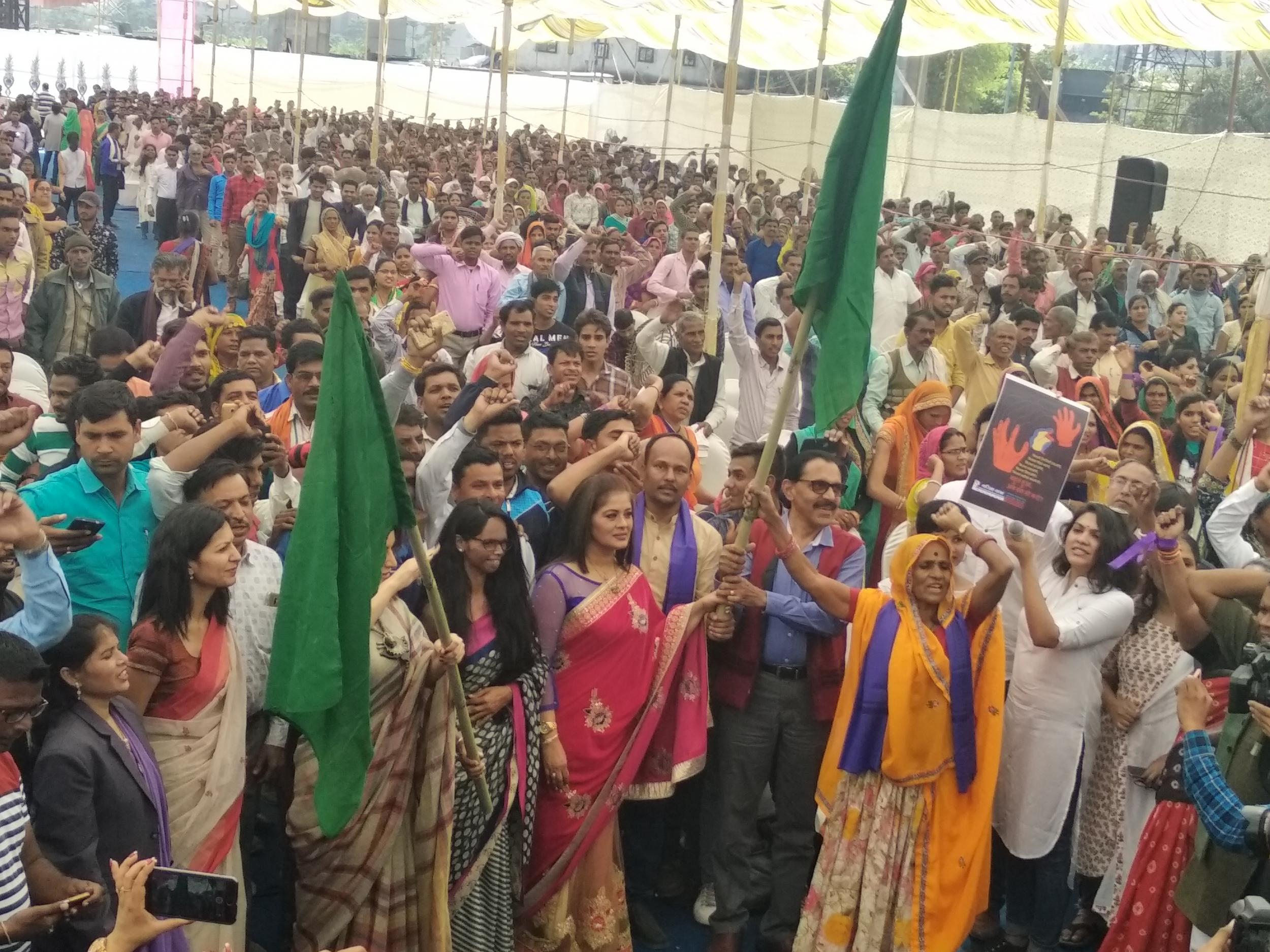Protests erupt in India after videos of sexual assaults on female college students go viral
'Watching the video of a girl begging her assailants to let her go was chilling,' says student protester

A groundswell of student protests have erupted in India’s southern state of Tamil Nadu after videos showing sexual assaults on college girls were posted on the internet.
Outrage increased after police said the footage was part of plot by an alleged sex blackmail gang.
They said the group of men were using the videos to try to befriend college students on social media, meet them to commit sexual assaults, then use video footage to blackmail them for money.
“Watching the video of a girl begging her assailants to let her go was chilling,” said Captain Prabhakar, a 21-year-old graduate student, who took part in a protest in the city of Coimbatore.
“In many of these areas, girls stepping out of their homes to attend college is a big deal. We fear that cases like this will result in restrictions being imposed again on girls.”
According to government data, the number of crimes against women reported to police in India rose by 83 per cent from 2007 to 2016. Four rape complaints were reported every hour in 2016, the data showed.
On Wednesday, police said they arrested four men in the town of Pollachi after a 19-year-old woman lodged a complaint against them.
The woman told police she was sexually assaulted by a group of men inside a car, one of whom she knew. She said the men trapped her, removed her top and filmed her.
The accused men allegedly warned her they would release the video if she did not cooperate with them.
She said they then stole her £220 gold necklace.
Police are now trying to identify other victims based on video footage recovered from the mobile phones of the four accused men. At least five sexual assault videos have been posted on social media.
The teen only gathered the courage to tell her family what had happened almost two weeks later, after the men had repeatedly attempted to extort money from her.
It has been claimed this attack was just one in a series committed by the gang, with local media suggesting they have been targeting women since 2013.
Student protesters and women’s rights campaigners called for police to quickly investigate the assaults and provide protection for the victims, many of whom have since been identified through the videos.
Naam Tamilar Katchi, a Tamil nationalist party, staged a demonstration rebuking alleged inaction by the police.
And campaigners have warned that victims of the alleged sex blackmail gang may not come forward after the name of a victim was made public by government officials.
The woman’s name was contained in an official document published by the Tamil Nadu government. It is illegal in India to report the name of a sexual assault victim.
Violence against women is a widespread problem in India – more than 50 per cent of Indian men and women still believe that wife-beating can be justified.
One woman is killed every hour for not providing enough dowry, according to 2013 statistics. A dowry is an amount of property or money given by a bride to her husband at the time of marriage.
But the conviction rate for crimes against women in India is very low – only 18.9 per cent and the lowest in a decade – according to the latest official crime statistics from 2016. The average conviction rate for all crimes is 47 per cent.
Rape is one of the most under-reported crimes in India – with some estimates indicating 90 to 95 per cent of rape cases remain unreported.
Sexual violence continues to be a taboo in the subcontinent and survivors are fearful of stigma or retribution if they report attacks.
However, the number of cases police register has been steadily rising following national outrage at the fatal gang rape of a student on a bus in New Delhi in 2012.
“The need of the hour is to help other victims break their silence and come forward with their complaints,” said Henri Tiphagne, director of human rights’ charity People’s Watch.
“We need to create a safe atmosphere for the other victims,” said Mr Tiphagne, who is based in Madurai, one of the major cities in Tamil Nadu.
The National Commission for Women, a statutory body that advises the Indian government, sent a letter to police saying they were “seriously concerned about the safety and security of women in Tamil Nadu”.
Additional reporting by news agencies
Join our commenting forum
Join thought-provoking conversations, follow other Independent readers and see their replies
Comments
Bookmark popover
Removed from bookmarks